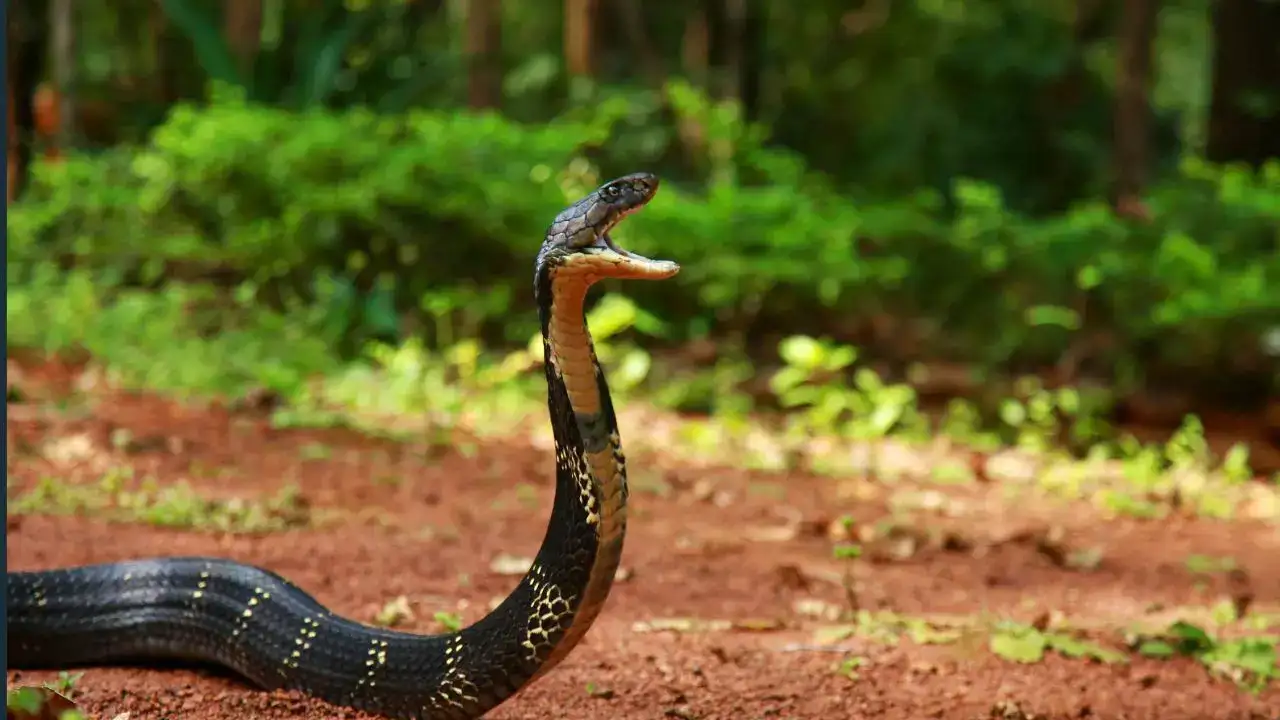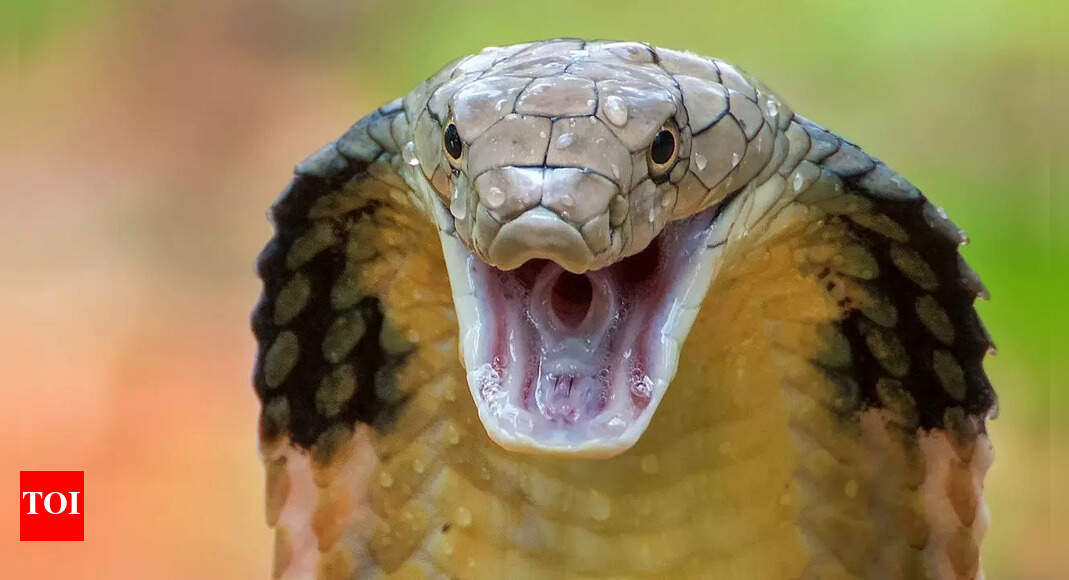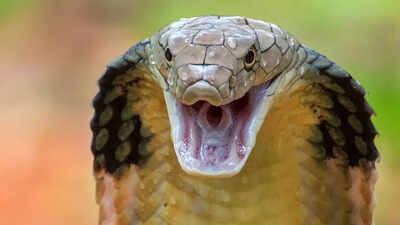[ad_1]
The King Cobra is one of the most fearsome and dangerous creatures in the world. It is also known as the longest venomous snake in the world, and instinctively evokes images of rainforest shadows and ancient myth.This legendary serpent, though often grouped with ‘true’ cobras, is a unique creature, for its physique and behaviour, diet, and varied legendary stories around it being the serpent God across many cultures.The king cobra holds the title of the longest venomous snake in the world, with most individuals measuring between 10–15 feet according to the Natural History Museum. Living across forests, mangroves, and wetlands in South and Southeast Asia, it is feared and respected.

King Cobra
The longest king Cobra in the world
According to the Guinness World Records, the longest king cobra ever recorded was captured in April 1937 near Port Dickson in Negeri Sembilan, Malaysia. It eventually reached a length of 5.71 meters or about 18 feet 8 inches by late 1939 and was displayed at the London Zoo. Unfortunately, when World War II began, the zoo made the difficult decision to put down all its venomous snakes, including this one, out of concern that if the zoo were bombed and the snakes escaped, they could pose a serious risk to the public.

King Cobra
King Cobra’s genus means ‘Snake eater ’
Interestingly, despite its name, the king cobra does not belong to the Naja genus, or the so-called “true cobra.” Its genus, Ophiophagus, literally means “snake eater”, which is a clear indication of its special diet that includes other venomous snakes, and even other king cobras.One of the most fascinating behaviors of the king cobra is its reproductive care. The female builds an above-ground nest made from leaf litter, soil, and plant debris. She guards this nest fiercely until the eggs hatch.

King cobra
The King Cobra is a shy creature
Despite its fearsome image, the king cobra typically avoids humans and only shows defensive behaviour when necessary. When threatened, it can lift up to one-third of its body off the ground, flare its hood, and emit a low, growling hiss before striking.Its venom is a potent combination of neurotoxins, capable of causing paralysis, respiratory failure, and cardiac collapse, as said by National Geographic.*Photos are used for representational purposes onlyPhoto credits: Canva
[ad_2]
Source link




